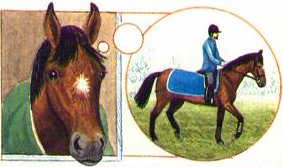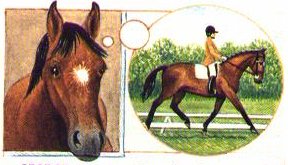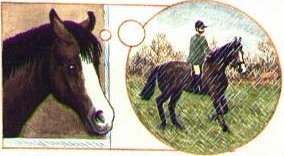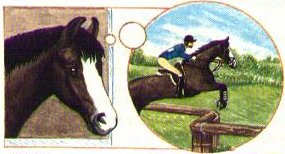The amount of hay, or haylage, will depend on the individual and the work he is doing. Stabled horses can be maintained on good quality hay when not working, and small ponies can thrive on hay alone when not working hard.
'Hard', concentrated food is necessary for horses that are working, growing, or need conditioning and warmth. Appetising succulents, and green food such as cut, fresh grass, provide some natural nutrition.
No horse should be made to work on a full stomach, so leave one to two hours for digestion after feeding
Do not feed immediately if he returns from exercise hot and sweating, or exhausted after a hard day - he will not be able to digest it.
If a horse has to be confined to his stable without exercise, even for one rest day, concentrates must be reduced and replaced with more bulk. For longer terms of confinement, halve the concentrates on the first day, then gradually cut them out altogether until he is on maintenance rations. Otherwise, his digestive system will be overloaded and over heated, causing it to malfunction or 'seize up'.
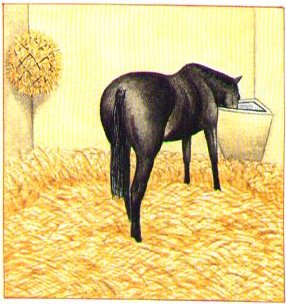
A permanent manger is usually more practical than a portable container which may tip over and has to be removed after feeding. Mangers must be kept very clean, using plain water.
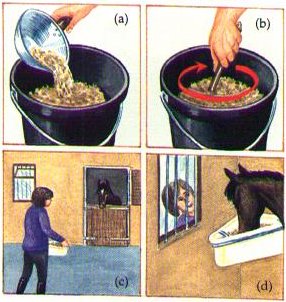
Feeding: (a) make up the feed; (b) mix it; (c) take it to him - do not leave it outside his door where he may see it; (d) watch to see that he eats with enthusiasm. If not, find out why.
